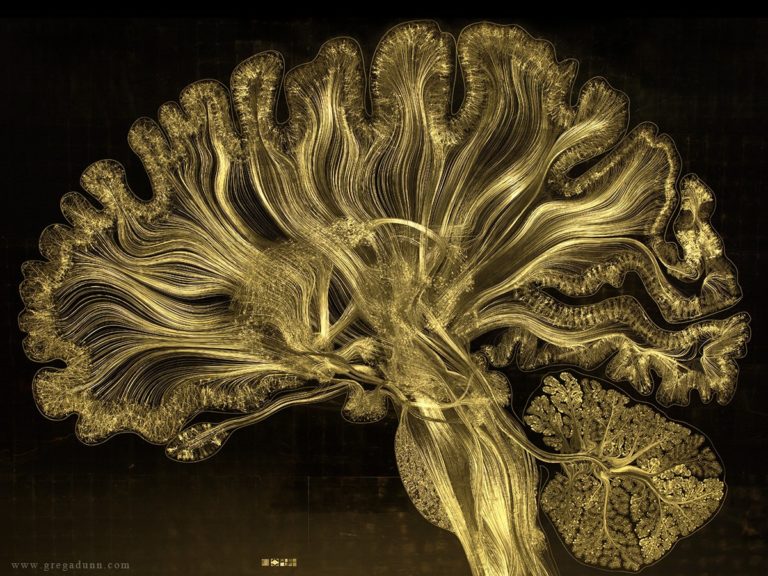The Proliferation of All That Will Ever Be
Munindra-ji once gave me a wonderful piece of advice. I went to my meditation teacher very upset about something. I’m not quite sure I even remember what it was about; I just wanted someone to talk to. In response, he looked at me very calmly and asked:
“Why are you so upset about the thoughts coming up in your mind? Did you invite them? Did you say, ‘At 3:15 I’d like to be filled with self-judgment?’”
Written down, these questions seem facetious or even sarcastic, but Munindra-ji was being earnest.
We can blame ourselves so harshly — as I was doing — for things we cannot control, rather than being empowered by what we can control, and how we relate to those thoughts that have arisen in our minds. He was urging me towards letting go of blaming myself and picking up the transformation I actually had available to me.
All of this can be easier said than done though. At the time, I probably knew the answers to his questions on some level, even if I didn’t realize it. I was in a state of distress not so much because of my initial feeling of anxiety or sadness but because of my reactions to those tough feelings. I was overanalyzing why I felt upset, and beating myself up. I probably started to feel guilty for letting myself feel unhappy, or maybe I perversely reasoned that I’d feel better if I blamed myself.
These lines of thinking happen to all of us, and yet we rarely talk about it. We’re conditioned to turn away from tough emotions, and even to feel shame about them. But the irony is that we make that difficulty worse for ourselves. Rather than inviting in an emotion like anger in order to learn more deeply about it, we create a nest of tangled up feelings and lose touch with the reason we were bothered in the first place.
Over time, I’ve come to recognize all of these distorted ways I was relating to my own pain, and that’s really how I “learned” the importance of compassion.
In Pali, the language of the original Buddhist texts, there’s a word, papancha, which is usually translated as “proliferation.” I have heard papancha described as the imperialistic tendency of the mind, where something happens and the whole world is taken over. One minute of feeling frustrated turns into a vortex of frustration and self-criticism: I can’t believe I’m frustrated. What did I do to deserve this frustration? I’m an angry person and always will be. What will my frustration feel like in an hour?
The possibilities for the “proliferation” are basically infinite. The only thing that can calm down the proliferation is awareness. It disrupts the cycle of adding on supposition, conclusions, anxious speculation. And in that disruption, we can come back to what is actually happening.
Years ago, my friend Joseph Goldstein and I were teaching a retreat together and happened to be sitting in the kitchen having a cup of tea one day when a student came in looking very distraught
Student: “I just had this terrible experience.”
Joseph: “Well, what happened?”
Student: “I felt all of this tension in my jaw, and I realized what an incredibly uptight person I am, and how I always have been and I always will be.”
Joseph: “You mean you felt a lot tension in your jaw.”
Student: “Yes. And I’ve never been able to get close to people and it’s never going to change.”Joseph: “You mean you felt a lot of tension in your jaw.”
It was really interesting watching them go back and forth, and back and forth. Finally Joseph said to him:
“Why are you adding a miserable self image to a painful experience?”
It’s painful enough to have tension in our jaw, but then all that we will ever be starts to proliferate; all our future, and how our life is going to unfold, gets assumed. It’s truly like the imperialistic tendency of mind. And we tend to do it quite a lot of the time. Turning around that habit is a way of directing our lives, having a sense of agency and empowerment that is far more real than the futile effort to determine that our jaw, or our hearts, will never hurt to being with.
While we might have some control of our lifestyle choices, relationships, jobs, and more, we can’t actually create or stop certain feelings from coming up. The real sense of freedom and empowerment in our lives is not from the fact that we can think or feel whatever we want, but that we can relate differently to the things we do think or feel.
I’ve learned that being in touch with how things are right now, without so many add-ons, inevitably leads to our feeling less boxed in, more spacious, and more resilient. This inevitably leads to our feeling a sense of inner resource. When we feel less exhausted, deprived, overcome within, we have room to be kinder to others. Simply learning how to see through proliferation and return to what is helps bring us into a different way of living.


Share your reflection